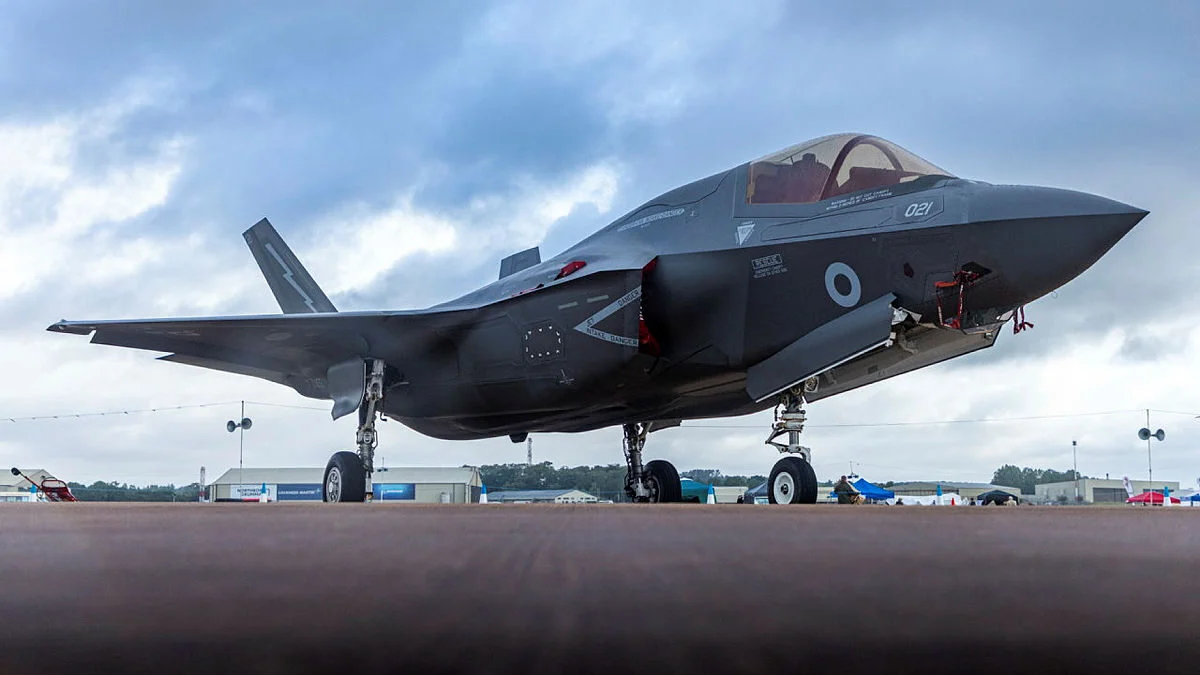Contents
- 1 Current UK Defense Spending and Its Implications
- 2 Arguments for Increasing Defense Spending to 2.5% of GDP
- 3 Counterarguments Against Increasing Defense Spending
- 4 The Impact of Defense Spending on National Security
- 5 The Economic Implications of Increased Defense Spending
- 6 International Comparisons of Defense Spending
- 7 The Political Landscape Surrounding Defense Spending in the UK
- 8 Conclusion and Future Outlook for UK Defense Spending
- 9 Author
The armed forces minister holds a crucial position in shaping the defense policies and expenditure of the United Kingdom. As a member of the government, the minister is responsible for overseeing the allocation of funds to various defense programs and initiatives. This includes ensuring that the armed forces have access to the necessary resources, equipment, and training to effectively carry out their duties.
Within the realm of jpslot defense spending decisions, the armed forces minister acts as a key advocate for the military. They work closely with defense officials, military personnel, and other relevant stakeholders to assess the current and future needs of the armed forces. This involves strategic planning, budgetary negotiations, and continuous evaluation of the nation’s security requirements.
However, the role of the armed forces minister goes beyond mere financial management. They also play a vital role in shaping defense policy, providing strategic direction, and representing the interests of the armed forces within the government. This includes participating in high-level discussions, engaging with international partners, and ensuring that the military’s capabilities align with the nation’s overall defense strategy.
As the armed forces minister departs from their position, their call for increased defense spending carries significant weight. This is because they have firsthand experience and a deep understanding of the challenges faced by the armed forces. By emphasizing the urgent need for a higher allocation of funds towards defense, the departing minister highlights the critical importance of adequately equipping the military to address emerging threats.

Current UK Defense Spending and Its Implications
Currently, the United Kingdom allocates approximately 2% of its GDP towards defense spending. While this figure meets the NATO target of spending at least 2% of GDP on defense, it falls short of the departing armed forces minister’s call for a 2.5% allocation. The existing defense budget supports a range of activities, including personnel salaries, equipment procurement, research and development, and infrastructure maintenance.
The implications of the current defense spending level are multifaceted. Firstly, it raises concerns about the nation’s preparedness to tackle evolving security threats. In an era of cyber warfare, terrorism, and geopolitical tensions, a robust defense capability is essential to safeguard the interests of the United Kingdom. Insufficient funding may hinder the military’s ability to modernize its equipment, invest in emerging technologies, and maintain a high state of readiness.
Additionally, inadequate defense spending can have repercussions for recruitment and retention of skilled personnel. The armed forces rely on attracting and retaining talented individuals who possess the necessary skills and expertise to fulfill their duties effectively. Insufficient funding may limit opportunities for professional development, hinder competitive compensation, and lead to a decline in morale among military personnel.
Moreover, a lower defense spending level may affect the nation’s standing on the international stage. In an increasingly interconnected world, countries are constantly evaluating each other’s defense capabilities. Insufficient investment in defense may undermine the United Kingdom’s reputation as a reliable and capable partner in international security efforts.
Arguments for Increasing Defense Spending to 2.5% of GDP
There are compelling arguments in favor of increasing defense spending to 2.5% of GDP. Proponents of this view argue that it is essential for the United Kingdom to adequately respond to the evolving security challenges it faces. By allocating a higher percentage of GDP towards defense, the country can enhance its military capabilities, protect national interests, and maintain stability both at home and abroad.
One of the primary reasons for increasing defense spending is to address emerging threats such as cyber warfare. As technology advances, so do the methods used by adversaries to disrupt critical infrastructure and compromise national security. By investing in cybersecurity measures, the armed forces can better protect the nation’s digital infrastructure and ensure the integrity of communication networks.
Furthermore, increasing defense spending can support the development and acquisition of advanced military equipment. Technological advancements in areas such as unmanned systems, artificial intelligence, and space-based capabilities offer new avenues for maintaining superiority on the battlefield. A higher defense budget allows for the research, development, and procurement of cutting-edge technologies, ensuring that the armed forces remain at the forefront of innovation.
Additionally, a stronger financial commitment to defense can bolster the United Kingdom’s deterrence capabilities. By demonstrating a robust defense posture, the country sends a clear message to potential adversaries that any aggression will be met with a formidable response. This acts as a deterrent and helps maintain stability, reducing the likelihood of conflict and ensuring the nation’s security.

Counterarguments Against Increasing Defense Spending
While the call for increased defense spending is compelling, there are counterarguments that advocate for more cautious approaches. Opponents argue that allocating a higher percentage of GDP towards defense may come at the expense of other crucial government priorities, such as healthcare, education, and infrastructure.
One counterargument suggests that the focus should be on optimizing existing resources and improving efficiency within the defense sector. By streamlining processes, reducing bureaucracy, and implementing cost-saving measures, it may be possible to achieve a stronger defense capability without significantly increasing spending. This approach emphasizes the need for prudent financial management and responsible allocation of resources.
Furthermore, critics argue that an emphasis on military spending may divert attention and resources away from addressing non-military threats, such as climate change and global pandemics. In an interconnected world, these challenges require collective action and investments in areas beyond traditional defense. Critics argue that a more holistic approach to national security, which includes addressing these non-traditional threats, is necessary.
Another counterargument suggests that international collaboration and cooperation can provide a more cost-effective solution to addressing security challenges. By working closely with allies and partners, countries can pool resources, share intelligence, and coordinate efforts to achieve common security objectives. This approach promotes burden-sharing and ensures a more efficient use of resources.
The Impact of Defense Spending on National Security
Defense spending plays a critical role in safeguarding the national security of the United Kingdom. Adequate funding for defense allows the armed forces to maintain a high state of readiness, respond effectively to emerging threats, and protect the nation’s interests at home and abroad.
Investing in defense enables the acquisition and maintenance of modern military equipment, which is essential for maintaining a credible deterrent capability. Advanced weaponry, surveillance systems, and communication networks enhance the armed forces’ ability to monitor potential threats and respond swiftly and decisively when necessary.
Moreover, defense spending contributes to the training and professional development of military personnel. Well-trained and skilled personnel are the backbone of any effective defense force. Adequate funding allows for continuous training, educational opportunities, and personnel support programs, ensuring that the armed forces remain highly competent and prepared to face a range of challenges.
Defense spending also has a significant impact on the domestic economy. The defense sector is a major employer, providing jobs and supporting various industries. Increased defense spending can stimulate economic growth, create employment opportunities, and drive technological advancements. It has the potential to benefit not only the armed forces but also the broader economy.

The Economic Implications of Increased Defense Spending
Increasing defense spending to 2.5% of GDP would have economic implications for the United Kingdom. While it would undoubtedly lead to a boost in defense-related industries and employment, there are considerations to be made regarding the broader economic impact.
Critics argue that higher defense spending may divert resources away from other sectors of the economy, such as healthcare, education, and infrastructure. The opportunity cost of allocating a larger portion of GDP to defense should be carefully weighed against the potential benefits in terms of national security and economic growth.
Furthermore, increased defense spending may contribute to budget deficits and government debt. The government would need to assess the sustainability of higher defense expenditure and consider the long-term implications for public finances. This includes evaluating the potential impact on borrowing costs, taxation, and public services.
However, proponents argue that defense spending can have positive multiplier effects on the economy. The defense sector often drives technological innovation, which can have spill-over effects on other industries. Research and development in defense can lead to advancements in areas such as aerospace, engineering, and communication technology. This, in turn, can enhance competitiveness, create jobs, and stimulate economic growth.
International Comparisons of Defense Spending
When considering defense spending, it is informative to compare the United Kingdom’s allocation to that of other countries. Such comparisons provide insights into global trends, potential gaps in capability, and the relative standing of the United Kingdom in terms of defense investments.
As of 2021, the United States has the highest defense spending in the world, accounting for approximately 3.7% of its GDP. This reflects its global military presence and the scale of its defense commitments. Other nations, such as Saudi Arabia, Russia, and Israel, also allocate a significant percentage of their GDP to defense, reflecting the unique security challenges they face.
However, it is important to note that defense spending alone does not determine a country’s military capability. The efficiency and effectiveness of resource allocation, technological advancements, and strategic planning also play crucial roles. Additionally, each country’s defense spending should be analyzed in the context of its unique geopolitical situation, threat perception, and national interests.
The Political Landscape Surrounding Defense Spending in the UK
The issue of defense spending is inherently political, with various stakeholders holding different perspectives and priorities. In the United Kingdom, defense spending decisions are subject to political debates, budgetary constraints, and the overall policy agenda of the government.
Political parties often have differing views on defense spending, reflecting their broader ideologies and priorities. Some advocate for increased investment in defense as a means of ensuring national security and projecting global influence. Others argue for a more restrained approach, emphasizing the need to balance defense with other pressing societal needs.
Within the government, defense spending decisions involve negotiations between the armed forces, the treasury, and other relevant departments. These discussions take into account the available resources, fiscal constraints, strategic priorities, and international obligations. Ultimately, the decision-making process requires careful consideration of multiple factors to ensure an optimal allocation of resources.
Public opinion also plays a role in shaping defense spending decisions. Opinion polls, public consultations, and feedback from advocacy groups can influence the government’s approach to defense expenditure. The public’s perception of national security threats, the role of the armed forces, and the broader policy priorities of the government all contribute to the political landscape surrounding defense spending.
Conclusion and Future Outlook for UK Defense Spending
In conclusion, the departing armed forces minister’s plea for the United Kingdom to spend 2.5% of its GDP on defense highlights the urgent need to address evolving security threats. While there are valid counterarguments and economic considerations, increasing defense spending can enhance the nation’s military capabilities, protect national interests, and maintain stability.
The future outlook for UK defense spending remains uncertain. It requires a delicate balance between national security priorities, fiscal responsibility, and broader societal needs. The government must carefully evaluate the potential benefits, economic implications, and international comparisons when making decisions regarding defense expenditure.
If you found this analysis insightful, we encourage you to explore our detailed exploration of another high-speed, competitive arena—Formula 1. Delve into our article on F1 to discover the thrilling intersection of technology, strategy, and human prowess that defines the world’s premier auto-racing championship.
